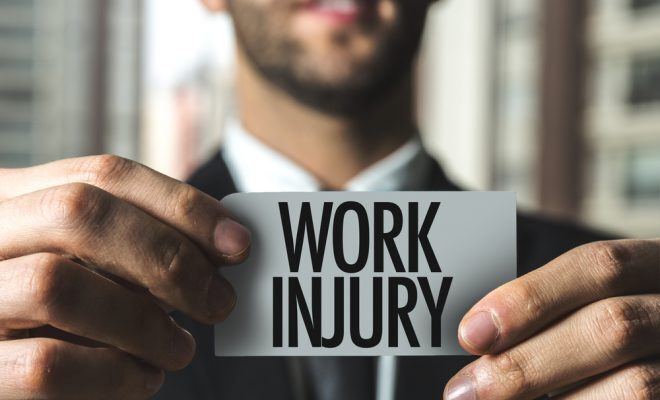A recent Workers’ Compensation Appeals Board Panel Decision, Juan Licea vs. Screwmatic ADJ10568300, provides many insights to Injured Workers as to how they may be videotaped by private investigators.
The WCAB Licea Opinion contained interesting facts about filming. Film, in the legal world, is referred to as “Sub Rosa.”
What Does The Licea Case Tell Us About Investigators?
The case had testimony indicated that “Defense witness David Lopez testified that he was the investigator who personally captured the sub rosa video of applicant. Mr. Lopez described the circumstances surrounding his filming: His procedure is to drive to the residence and conduct surveillance from his vehicle. Once he sees the person, he turns his camera on. He then follows that person until they return to the home. …He noted that the Witness never obtained the consent from Applicant.”
In sum, they often take the video at the Injured Worker’s residence. Also, the Investigator make no attempt to obtain consent.
What did the Licea Video Show?
The summary from the Court noted “On November 2, 2020, applicant in front of his home, moving trash cans, carrying trash cans from the street to the driveway, picking some fruit, and entering his home through the front door. On November 4, 2020, applicant driving from his driveway to the street, parking the car and walking to his front door, and three passengers exiting the vehicle. (Id. at 5:7.) On November 5, 2020, applicant parking his SUV and washing it, retrieving a stool from within the home, and later returning it, returning to the vehicle and driving the vehicle. (Id. at 5:21.) On the same day, applicant exiting a mini-market and driving from the mini-market. Applicant with a woman in front of his house near the vehicle, the woman entering the vehicle on the driver’s side, applicant entering on the passenger-side. Applicant getting out of the vehicle and returning with a cane, and getting back into the vehicle. Applicant walking with the woman, in what appears to be a parking lot, and returning to the vehicle. (Id. at 6:3.) Finally, applicant near the citrus tree in his front yard near the front door. (Id. at 6:5.) Mr. Lopez also testified that he used a camera with a zoom feature, and that the films captured persons in addition to applicant. (March 17, 2021 MOH, at 7:1.)”
In sum, Investigators will capture day to day activities. They will also capture other individuals on the film. Further, they will employ the zoom camera feature to get better shots.
How Close Can an Investigator Come to the Injured Workers’ Property?
In the Licea case, it is noted that “when asked whether the investigator came on to his property he said yes. He then clarifies that the investigator was walking in front of his house not on his property. He was about 15 steps away from the witness. He agrees with the Defense Attorney that this was 15 feet. … The investigator was close to his house. He knows it was the investigator because [the investigator] was looking at the witness’ house and looked very suspicious. This was the same Mr. Lopez who testified at the last trial. (MOH, at 4:21-23; 5:3-5.)”
In sum, Investigators may come up to the property line to obtain video.
What About Privacy Rights?
The Court Opinion acknowledged that the Injured Worker had privacy rights. It noted “we further conclude that although applicant retains a fundamental right to privacy under the California Constitution, applicant has not established a reasonable expectation of privacy for conduct in the front yard of a home that is plainly visible from the street and sidewalk or in the publically accessible parking lots where he was surveilled.”
The Appeal Board noted, however, that “ there is no reasonable expectation of privacy in the front yard of a residence that is plainly visible from the street, absent additional indicia such as a high wall or a doorbell at the front gate. In the present matter, the investigator confirmed that his procedure involved capturing 10 surveillance from his vehicle on the street, and following the subject until they returned home. (March 17, 2021 MOH at 4:14.) Applicant testified that although the investigator walked in front of the house, he never came onto applicant’s property.”
In sum, privacy is a judgment call issue. Hypothetically, a camera was placed over a high fence might be considered an invasion of privacy.
What About the Injured Worker’s Family’s Right to Privacy?
The WCAB Opinion addressed this issue: “we also address applicant’s contention that the members of his family depicted in the video did not provide authorization to be included in the surveillance films. Applicant testified that his grandchildren were minors at the time of the filming, and that neither he nor his family members gave defendant “permission to film and use.” (April 22, 2021 Minutes at 2:13; Applicant’s Trial Brief, at 4:19.) However, to the extent that applicant avers his spouse and grandchildren are subject to an alternative privacy-related standard, applicant puts forth no authority for this contention. We observe that for the family members incidentally captured in the sub rosa films, just as with applicant himself, there is no reasonable expectation of privacy for conduct in the front yard of a home that is plainly visible from the street and sidewalk.”
In sum, they have the same privacy rights as the Injured Worker. There must be a reasonable expectation of privacy. A sidewalk in front of a house most likely does not constitute an expectation of privacy. In a gated community, perhaps it would.
What If I Need Advice?
If you would like a free consultation regarding workers’ compensation, please contact the Law Offices of Edward J. Singer, a Professional Law Corporation. We have been helping people in Central and Southern California deal with their workers’ compensation cases for 27 years. Contact us today for more information.
